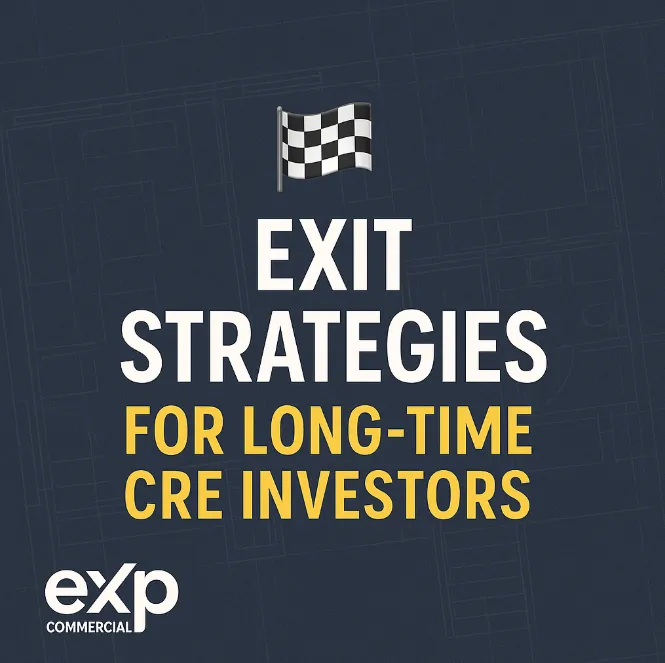
🏁 Exit Strategies Every Long-Time CRE Investor Should Know 💼
🏁 Exit Strategies Every Long-Time CRE Investor Should Know 💼
💡 How to Plan Your CRE Exit Strategy: Tips for Long-Time Investors 🏢
🏁 Exit Strategies for Long-Time CRE Investors
For many long-time commercial real estate (CRE) investors, holding onto properties has been the foundation of their wealth-building journey. But at some point, the focus shifts from acquisition to transition. Whether you’re nearing retirement, restructuring your portfolio, or simply ready to capitalize on gains, having a well-thought-out CRE exit strategy ensures you maximize returns while minimizing risk.
Here are the most common and effective exit strategies for seasoned CRE investors:
1. Traditional Sale
Selling your property outright is the most direct way to exit. In strong markets like Houston, investors can benefit from appreciation, high demand, and low cap rate environments. However, timing is critical—selling during a downturn could mean leaving money on the table.
2. 1031 Exchange
For investors looking to defer capital gains taxes, the 1031 exchange remains one of the most powerful tools. By rolling proceeds into a new investment property, you not only defer taxes but also keep your capital working for you. Many long-time owners use this strategy to transition into more passive property types, such as multifamily or net-leased assets.
3. Sale-Leaseback
This option allows an owner-operator to sell their property to an investor while leasing it back for continued business use. It frees up capital without disrupting operations—a win for business owners seeking liquidity.
4. Refinance & Hold
Not ready to sell? A cash-out refinance provides liquidity while you continue to enjoy property ownership and cash flow. This strategy is especially attractive when interest rates are favorable, allowing investors to redeploy capital into new opportunities without selling.
5. Legacy & Estate Planning
For long-time CRE investors, real estate often plays a central role in estate planning. Transferring property through trusts, family partnerships, or gifting strategies helps ensure assets are passed down efficiently, often with tax advantages.
6. REITs & Syndication Exit
Some investors choose to exit by selling to or merging with institutional players like REITs or syndications. This provides liquidity while benefiting from institutional-grade valuations.
🔑 Key Considerations for Your Exit
· Market Timing: Local supply/demand, interest rates, and economic cycles matter.
· Tax Implications: Consult a CPA or financial advisor before executing any exit.
· Personal Goals: Decide whether you want liquidity, passive income, or legacy transfer.
✅ Final Thoughts
Your exit strategy in commercial real estate is just as important as your acquisition strategy. Long-time CRE investors have built significant equity and wealth—but without a clear plan, much of that value can be lost to poor timing or taxes. Working with an experienced commercial broker and capital advisor ensures you maximize your return, whether through a sale, refinance, or legacy plan.
https://www.houstonrealestatebrokerage.com/
https://www.houstonrealestatebrokerage.com/houston-cre-navigator
https://www.commercialexchange.com/agent/653bf5593e3a3e1dcec275a6
http://expressoffers.com/[email protected]
https://app.bullpenre.com/profile/1742476177701x437444415125976000
https://author.billrapponline.com/
https://www.amazon.com/dp/B0F32Z5BH2
https://veed.cello.so/FOmzTty6oi9
© 2023-2024 Bill Rapp, Broker Associate, eXp Commercial Viking Enterprise Team
